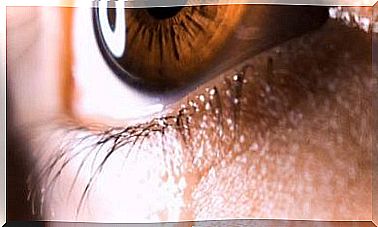What Are The Medications That Can Raise Your Blood Pressure?
If you have a tendency to high blood pressure, you should know that some medications may be contraindicated or must be taken with great control. These drugs can raise the pressure and lead to the prescription of antihypertensives, which would not be necessary.

High blood pressure is a risk factor for heart disease and stroke, which are among the leading causes of death in Europe. The good news is that blood pressure can be controlled in most cases without resorting to medications, if appropriate changes are made in diet and lifestyle.
But hypertension is due in at least one in five hypertensive patients to the use of some drug for another problem, according to a study from the 70th Annual Conference of the American College of Cardiology in May 2021.
Medications that can increase blood pressure
Based on the aforementioned research, there are several classes of medications in particular that can cause high blood pressure:
- Antidepressants
- Nonsteroidal anti-inflammatory pain relievers , especially ibuprofen.
- Steroid drugs, for example, cortisone, which is used to treat gout, lupus, or arthritis.
- Antipsychotics
- Some oral contraceptives.
- Decongestants (to reduce swelling of the nasal mucous membrane).
Taking multiple medications is common
Researchers who participated in the study find the results worrisome, especially since almost half of all patients with high blood pressure do not have it under control.
Dr. John Vitarello, study director and internist at Beth Israel Deaconess Medical Center in Boston, explains that hypertensive patients should achieve a blood pressure of less than 130 mmHg (systolic) and 80 mmHg (diastolic), according to current guidelines. .
However, these values are often not achieved, especially since many people with high blood pressure do not know they have it. In other cases, the patient takes high blood pressure medications, which are not entirely effective because they are taking other medications.
This is the case of many older people, who combine antihypertensive drugs with other drugs. The researchers affirm that it is necessary to find solutions to this situation.
Suspending or exchanging antihypertensive medications
Data from 27,599 participants were analyzed for the study. 49 percent of people with an average age of 55 already had high blood pressure (that is, more than 130/80 mmHg). In the case of women with high blood pressure, 24 percent took a drug that increases blood pressure, in the case of men, it was 14 percent.
Dr. Vitarello advises doctors not to prescribe blood pressure-raising medications when they are not absolutely essential. Avoiding medication that has hypertension among its side effects would allow many people to control their tension without any medication.
Treat high blood pressure and other diseases naturally
If you have high blood pressure and are taking any of the above medications, talk to your doctor about it and ask for an alternative that does not affect your blood pressure.
Still, the drug is often not the only culprit. A 2018 study indicates that, for example, in patients taking antidepressants there are often other factors that increase blood pressure, since they also suffer from diabetes, lipid metabolism disorders, vascular diseases and obesity. They also smoke more often than average.
Remember that you can do many things to reduce blood pressure, such as losing weight, eating a plant-based diet, rich in fiber and adjusted in calories, exercising and practicing some relaxation technique.
Disorders that lead to taking drugs that increase blood pressure, such as gout, arthritis or osteoarthritis, can also be treated naturally.
Scientific references:
- Vitarello et al. Use and Estimated Impacts of Medications that Raise Blood Pressure Among US Adults with Hypertension: National Cross-Sectional Study. Journal of American College of Cardiology .
- Breeden M et al. Antidepressants and Incident Hypertension in Primary Care Patients. The Journal of the American Board of Family Medicine.
- Aljadhey et al. Comparative effects of non-steroidal anti-inflammatory drugs (NSAIDs) on blood pressure in patients with hypertension. BMC Cardiovascular Disorders.
- Armstrong et al. ACOG Releases Guidelines on Hormonal Contraceptives in Women with Coexisting Medical Conditions. American Family Physician.









